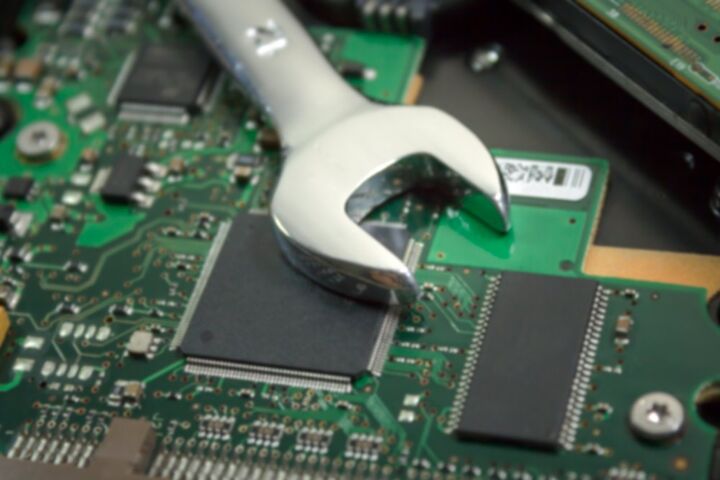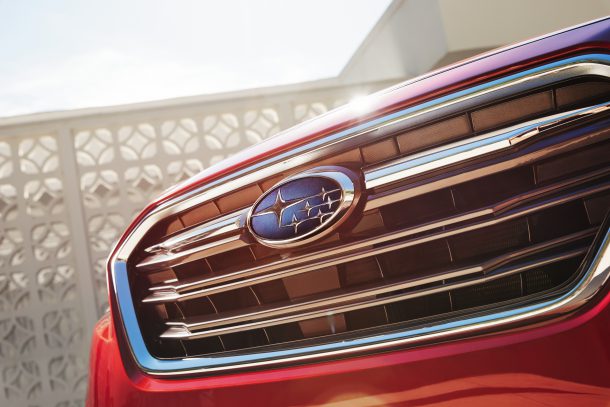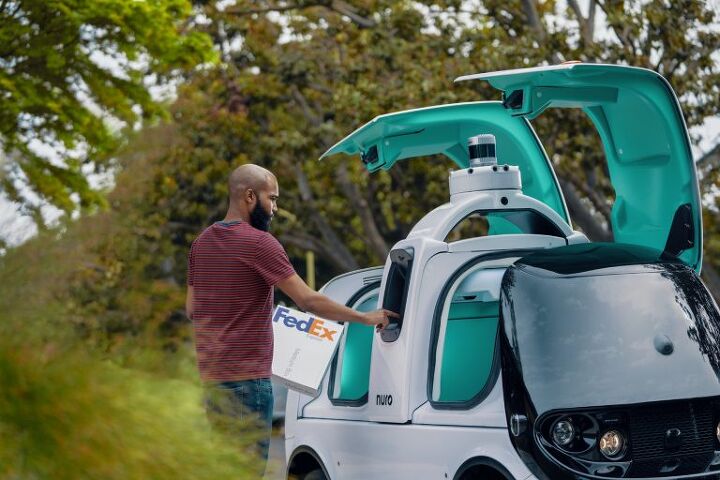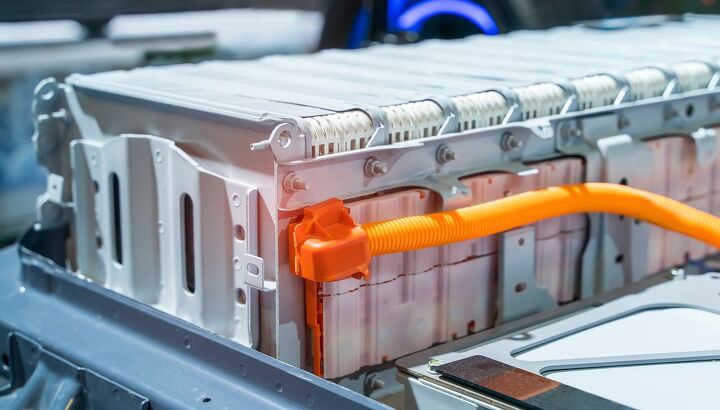#IndustryNews
Report: Biden Admin May Link Semiconductor Subsidies to Unions
Despite the semiconductor shortage having encouraged the automotive sector to repeatedly idle factories, word on the ground is that things are becoming more stable. Companies are seeing less production downtime overall and workers are reporting more reliable working conditions across the board. However, several automakers have continued to express concerns (e.g. Volvo), alleging that chip shortages could stretch deep into 2022, while the U.S. government ponders how to advance chip production in-country and become less dependent on Asian suppliers.
Commerce Secretary Gina Raimondo has been touring Michigan, meeting with union members and industry heads, and plans to urge Congress to move on a $52 billion in funding bill aimed at boosting domestic production. We’ve questioned the efficacy of the CHIPS Act before, primarily in relation to how the subsidies would be allocated. But there are new concerns that the plan will mimic the Biden administration’s EV subsidies by spending heaps of taxpayer money and giving union-backed organizations a larger cut.
Opinion: Governors Begging Congress for Semiconductor Cash Won't Fix Anything
There’s an initiative to convince Congress to pass legislation that would pour billions of dollars onto chip manufacturers at play that’s being led by Michigan Governor Gretchen Whitmer. A letter, signed by nine other governors, was issued asking like-minded lawmakers to send $52 billion in economic aid so that the chip shortage so that the supply issues that have been plaguing various industries (including the automotive sector) can finally be resolved.
Backed by the U.S. Semiconductor Industry Association (SIA), the “CHIPS for America Act” is just one of several programs designed to use the National Defense Authorization Act to create federal funding for chip suppliers. The governors (all of which are from states manufacturing automobiles) say they want a cash injection by the end of 2021 so that domestic chip manufacturing can build new factories right away. But SIA lobbyists are pressing for numerous plans that would result in extensive tax breaks and annual investments from the government that is all focused around the proposed CHIPS legislation and piggybacks on the recently passed U.S. Innovation and Competition Act (USICA).
Alright, let’s break this down.
Right-to-Repair Victory Forces Subaru to Tweak Things in Massachusetts
Subaru of America will be canceling Starlink telematics subscriptions on all new 2022 vehicles sold in Massachusetts thanks to the state having an amended right-to-repair law that’s wildly unpopular with global automakers. If you’ve been following our coverage, Massachusetts has become ground zero for consumer advocacy groups, independent repair shops, and car buyers that have grown concerned with the industry’s increased interest in data hoarding.
The argument is that the automakers are now building vehicles that violate customer privacy — by wirelessly transmitting information back to manufacturer data farms — while also setting them up to make independent repairs nearly impossible. This resulted in an extended legal battle where the Alliance for Automotive Innovation (AAI) went to bat to ensure the industry retained this lucrative venture. But it was stymied by the grassroots campaign launched against it. Massachusetts’ updated law currently requires all vehicles sold within the state (from the 2022 model year onward) using telematics systems to be equipped with a standardized, open-access data platform that would allow customers and unaffiliated mechanics to gain access.
Ford Repurchasing $5 Billion in Debt, Tapping Into ESG & Green Bonds
Ford Motor Co. has announced a cash tender offer to repurchase up to $5 billion of the company’s high-yield debt in the hopes of rebalancing its budget after needing to borrow so much during the back-to-back-to-back production shutdowns incurred since the start of 2020. The automaker is retiring as much of the $8 billion in bonds the company issued at the start the coronavirus pandemic as it can and will be doing the same for some older bonds issued at similarly high rates (over 8 percent annually).
However this will be used to make room for environmental, social and corporate governance (ESG) initiatives and establish a “sustainable financing framework” the automaker said would be a first for North America. Ford clearly believes social governance investments will become increasingly routine and is attempting to showcase itself as one of the kinder, more forward thinking, and environmentally responsible multinational industrial concerns. Sort of like a fully armed M1 Abrams tank painted with peace symbols and hippie daises.
Nuro Raises $600 Million, Valuation Reaches $8.6 Billion
While the concept of mobility has often turned out to be a buzz phrase used by executives unsure of where to place hypothetical revenue streams and burgeoning technologies, it has simultaneously yielded a handful of enterprising business premises with the potential to stand on their own. Nuro, the American robotics company fielding pint-sized delivery drones, is among them and has made a case for itself by eliminating humans from the equation entirely and providing unique scenarios for its services.
The startup has been getting a smattering of positive attention since its formation in 2015 and recently raised $600 million during its latest funding round, bringing its valuation to an impressive $8.6 billion.
Infiniti Convinces Woman to Take Three Jobs
Nissan-owned Infiniti has opted to merge marketing, public relations, and social media oversight into a single position. Framed as a promotion for Wendy Orthman, the brand’s current global head of communications, the management shift takes place shortly after former General Manager Global Brand and Marketing Phil York decided he had better things to do in Europe. But it really just seems like the company figured out a way to roll three jobs into a single paycheck.
Effective today, Orthman will be assuming the freshly minted title of general manager of Global Integrated Brand, Marketing and Communications. According to the automaker, the position combines the roles of a chief marketing officer and head of communications while also providing oversight for Infiniti’s social media and public relations.
Tesla Fixes Full Self-Driving Beta Software Issue
Following claims that Tesla’s “Full Self Driving” beta caused some vehicles to experience erroneous forward collision warnings and the automatic emergency braking system stopping cars for no discernable reason, the manufacturer has filed a probable fix with the National Highway Traffic Safety Administration (NHTSA).
The recall encompasses 11,700 equipped with FSD beta software version 10.3 that was released on October 23rd. While Tesla says that the vast majority of the vehicles selected to test the new code were already fixed via over-the-air updates, 0.2 percent of the whole still had not been issued a fix as of October 29th. Affected cars include every Tesla model ever made, provided it’s from the 2017 model year or later.
VW Pumps the Brakes On Porsche Going Public, Eyeballs Job Cuts
Back in February, there was some buzz that Volkswagen Group was seriously considering spinning off the Porsche brand or at the very least listing it on the stock exchange. While the rumors technically go back further than that, it wasn’t until early 2021 that outlets started citing anonymous sources claiming VW felt it had become too bloated with brands and wanted to shake loose some money whilst streamlining the organization.
Not so, says Volkswagen CEO Herbert Diess. It always seemed suspect that the manufacturer would offload what has consistently become one of its most profitable brands, though an IPO didn’t seem out of the question considering how ridiculously well it has worked for other entities underpinned by hype (valid or otherwise). Diess has indicated that neither scenario looks plausible anymore, stating that VW isn’t all that interested in surrendering any amount of control right now.
Tesla Removes Full Self Driving Beta Over 'Issues'
Tesla Inc. pulled its Full Self Driving (FSD) beta off the table over the weekend, with CEO Elon Musk stating that testers had been “seeing some issues with [version] 10.3.”
To remedy the issue, the company has reverted back to FSD 10.2 temporarily. Musk made the announcement over social media on Sunday morning. The following day, he had already promised that version 10.3.1 would be coming out to address problems encountered during the exceptionally short public testing phase.
“Please note, this is to be expected with beta software,” the CEO noted. “It is impossible to test all hardware configs in all conditions with internal QA, hence public beta.”
Report: Apple Car Suffers Another Setback
Following several months of news that Apple Inc. was in talks with battery suppliers to set the company up with the necessary hardware and know-how to manufacture electric vehicles, it looks like the iPhone purveyor is back to square one. Reports have emerged claiming the discussions with China’s Contemporary Amperex Technology Co. Limited (CATL) and BYD have stalled.
While the tech giant is said to be keeping a channel open, companies informed Apple over the last two months that they would not be willing to establish teams and U.S. facilities catering exclusively to its needs. While Japan’s Panasonic is still in the mix as a potential partner, it’s looking like the other companies are bowing out. Reasons are said to vary, however, political tensions between the U.S. and China are alleged to be a contributing factor.
AutoNation Wildly Profitable While Car Prices Are Grotesquely High
With automobile prices ballooning to egregiously high levels, one might assume that the industry would be in rough shape. But they’d be dead wrong. Supply chain disruptions have actually created a captive market where consumers are desperate to lay their hands on whatever products are available. In the automotive realm, this has allowed retailers to set ludicrous prices and rake in larger profits per transaction. While inflation may eventually catch up to these entities, the gravy train is currently parked at the station and dousing big business with its warm, brown effluence.
Nobody knows this better than the folks at AutoNation. Because the company just released a quarterly profit report that blew its rosiest projections out of the water. Net income its ongoing operations was $361.7 million for Q3 2021, double the $182.6 million witnessed in Q3 of 2020, while revenue rose 18 percent to $6.4 billion.
Toyota, Stellantis Announce North American Battery Plants
Automakers Toyota and Stellantis separately announced plans to construct lithium-ion battery plants in North America on Monday. With regulatory pressures mounting, the industry has been shifting its eggs between baskets to avoid trouble. But the ultimate goal for most brands is to transition toward selling EVs, requiring meaningful action and financial expenditures on the part of manufacturers.
We’ve already seen General Motors and Ford Motor Co. squabbling over who will nestle the biggest battery facilities between America’s Frost and Sun Belts. It’s only fitting that the remnants of the Chrysler Corporation contained in Stellantis walk the path of electrification, especially now that it’s absolutely riddled with European influence. Meanwhile, Toyota is predictably exercising a bit of caution as it similarly navigates how to modernize itself via upcoming lithium-ion plants.
'Made in America Auto Index' Gives Ford Mustang GT the Crown
Annual automotive-content indexes have grown in popularity since trade restrictions and tariffs have become increasingly relevant issues. But they’re usually pretty generic, often providing the broad strokes of product origin while placing a few cars housing the most regional content on a pedestal. Not so with the Kogod School of Business’ 2021 Made in America Auto Index. While the metrics used are a little different from what’s found elsewhere, it offers a more comprehensive data set than other catalogs.
Though most people still like to know which vehicles were dubbed the “most American” and Kogod’s percentage-based scoring system makes it pretty easy to figure out. We won’t leave you hanging. For the 2021 model year, the Ford Mustang GT was evaluated as the car boasting the highest level of North American hardware and labor. But you have to get a manual transmission for the necessary 88.5 percent total domestic content rating (TDC). Select the automatic and that number drops to 51 percent, which is still better than the Mustang Mach-E’s paltry 15-percent score.
Dual Realities: VW CEO Claims Slow EV Shift Could Cost 30,000 Jobs
Like the rest of the world, the automotive industry is currently living in two distinct realities. Labor unions and part suppliers have been sounding the alarm that electric vehicles will require far fewer hands to manufacture and will ultimately lead to their demise. But battery firms, establishment politicians, and most automakers have claimed that transitioning to EVs is entirely necessary and will result in there being a surge of high-paying jobs to replace those lost.
Then there are claims you can’t quite wrap your head around, like the one Volkswagen CEO Herbert Diess reportedly made to the supervisory board in September. The Diess Man asserted that VW would lose 30,000 jobs if it transitioned too slowly to electrics, framing the situation around Tesla arriving in Germany and fresh competition from Chinese manufacturers. While it’s certainly possible that VW could take a hit as its rivals move on Europe, the premise that it’s going to cost the business jobs is sort of bewildering when just about every analyst agrees that electrification will result in a leaner workforce across the board.
Tesla Officially Moving to Texas, Elon Musk Confirms Austin HQ
Tesla CEO Elon Musk has officially announced that his company would be moving house this week. Currently nestled upon the bosom of Silicon Valley in Palo Alto, CA, the automaker has expressed its intent to establish a new base of operations in Austin, TX. While this situation has been a long time coming, it’s not quite the prompt walkout that everyone was predicting 17 months ago.
At the start of the pandemic, Musk found himself at odds with local officials pushing strict COVID lockdowns. The CEO had wanted to keep the all-important Fremont facility up and running at the start of 2020, suggesting workers could simply choose to stay home without there being any negative repercussions (or pay). Told again to shut down, Tesla sued Alameda County on the grounds that its orders were unconstitutional and violated a return-to-work mandate recently issued by Governor Gavin Newson. Before long, Elon Musk was openly confessing he was fed up with the state of California and would be relocating the business.





























Recent Comments